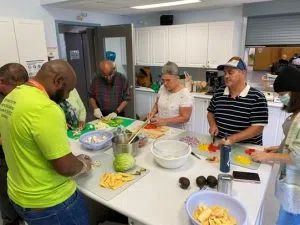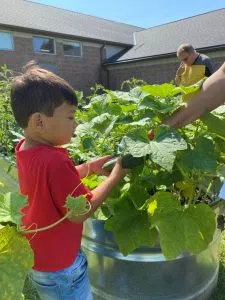
(Taco Cooking Class. Credit: Salvation Army)
The Salvation Army in London, Ont., has made the decision to end its food bank program. This change comes after 18 months of evaluating the organization’s impact and its alignment with the mission to meet human needs and be a transforming influence.
Nancy Kerr, executive director for the Salvation Army London Community and Family Services, explained that the move is part of an effort to reduce social isolation and improve overall physical and mental health. “We realized we’re not being transformational. “We know that there’s a need for food banks, that food insecurity is a challenge for a lot of people, but we also recognize that food banks in and of themselves are not a long-term solution.”

(Girls ages 12-13 from the ´Empowernest´ program: Credit: Salvation Army)
According to Kerr, it is important to take a more comprehensive approach to helping people move out of poverty. “We want to help people into a life they have more control over so that they can make their decisions and achieve greater success,” she said. “There are over 40 places in London where people can go to get food. We discovered that as we were going through our process to determine what is the impact on the community if we make this change.”
Despite the closure of the food bank, several cherished programs will continue. To learn more about the Salvation Army’s plans, watch the next video where the executive director shared details with 106.9 The X:

(´Neighbourhood Grows´gardening program. Credit: Salvation Army)
“We launched last week a new program called PDEA, which takes place on PD days for children aged four to ten. During the event, kids enjoyed crafts, games, and snacks in a safe, welcoming environment, allowing them to connect with staff and fully engage. Parents told us their kids said they were having so much fun that could have stayed for hours and they’ve already asked us how they can sign up for our next PDA event in January”, Kerr added.
The organization continues to address food insecurity with its ´Let’s Eat Breakfast´ program, teaching some children in grades six to eight how to cook breakfast items that will be given out to kids in the school whose parents can’t afford to send them with food. “What we found was that some of the kids weren’t coming to school because the parents couldn’t afford or to send them with meals”, she concluded.











